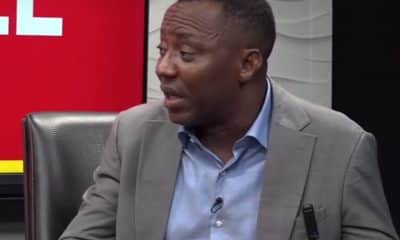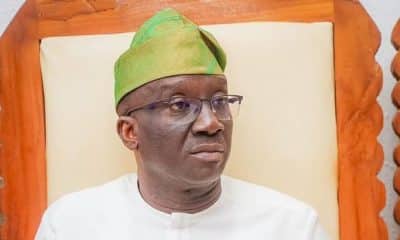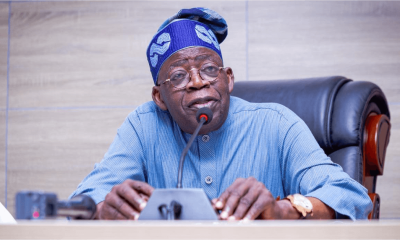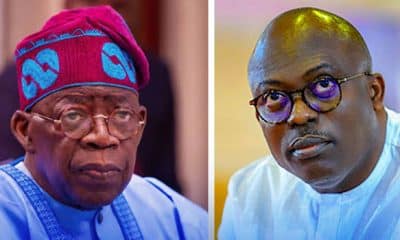Nigeria News
Goodluck Jonathan Made History Conceding To Buhari In 2015 – Uwah
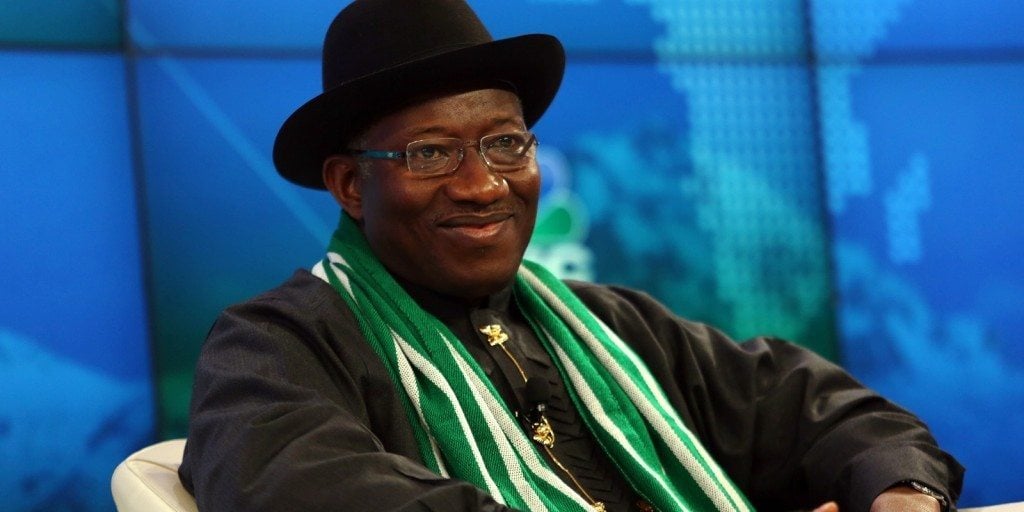
The Executive Secretary of the International Supreme Council for Peace Africa, Ambassador Simeon Uwah, has underscored the significant sacrifice made by former President Goodluck Jonathan in accepting defeat during the 2015 general elections.
Uwah characterized Jonathan’s choice as a pivotal moment in the advancement of democracy in Africa.
Naija News recalls that in the 2015 elections, Jonathan made history by conceding to former President Muhammadu Buhari in a highly competitive contest.
This extraordinary gesture astonished Nigerians and drew global attention.
During a press conference in Uyo on Monday, marking the tenth anniversary of the event, Uwah reiterated that Jonathan’s commitment to a peaceful transfer of power serves as an important lesson for African leaders who, in times of crisis, opt to hold onto power instead of fostering peace.
He said: “On March 31, 2015, exactly 10 years ago today, former Nigerian President Goodluck Jonathan made history by conceding defeat to Muhammadu Buhari after a fiercely contested presidential election,” Uwah said. “In an era where political leaders across Africa often resort to violence, electoral disputes, or unconstitutional maneuvers to hold onto power, Jonathan’s concession stands as one of the most defining moments of African democratic maturity. It was a turning point, and Nigeria’s democracy was draped in bright colors.”
Uwah further noted that Jonathan’s now-famous phone call to Buhari to offer congratulations was more than just a gracious acknowledgment of the election results.
It was a deliberate act of commitment to peace, democracy, and national stability.
“His phone call to Buhari was not merely a gesture of sportsmanship—it was a purposeful step towards ensuring peace. This single act helped avert post-election violence, saved countless lives, and strengthened Nigeria’s democratic standing on the global stage,” Uwah added.
He emphasised that Jonathan’s decision should serve as a model for Africa, particularly as the continent continues to face political crises.
“As Africa grapples with military coups, disputed elections, democratic backsliding, and the entrenchment of authoritarian regimes, Jonathan’s approach remains a crucial blueprint for democratic governance and reforms,” Uwah said. “With political instability on the rise across the continent—from Guinea to Sudan, Gabon to Burkina Faso—instituting patriotic and democratic leadership is not just optional, it is imperative. If this direction is not followed, Africa risks facing even greater challenges.”
Uwah proposed that Jonathan’s exemplary peaceful concession be utilized as a case study in governance and leadership training for African leaders.
He urged the African Union and the Economic Community of West African States to formalize peaceful transfers of power and leadership transitions as democratic norms to protect the continent’s democracy from potential failure.
Uwah emphasized that political transitions should be characterized by collaboration rather than conflict.
He highlighted the necessity for future leaders to prioritize bipartisanship and national reconciliation as fundamental governance principles.
In closing, he recalled Jonathan’s poignant statement from that significant moment: “My ambition is not worth the blood of any Nigerian.”
Uwah encouraged African leaders to adopt this perspective—not merely in words but in their actions—moving forward.



